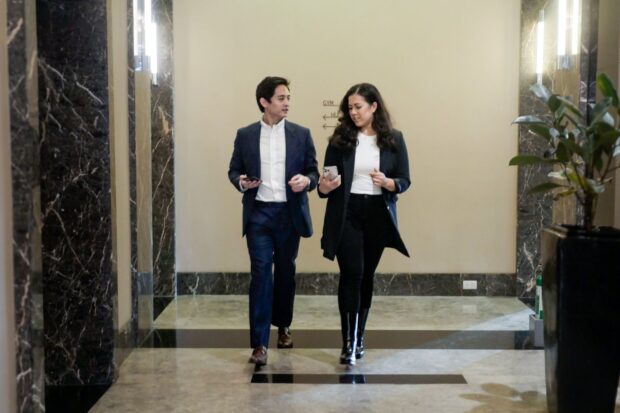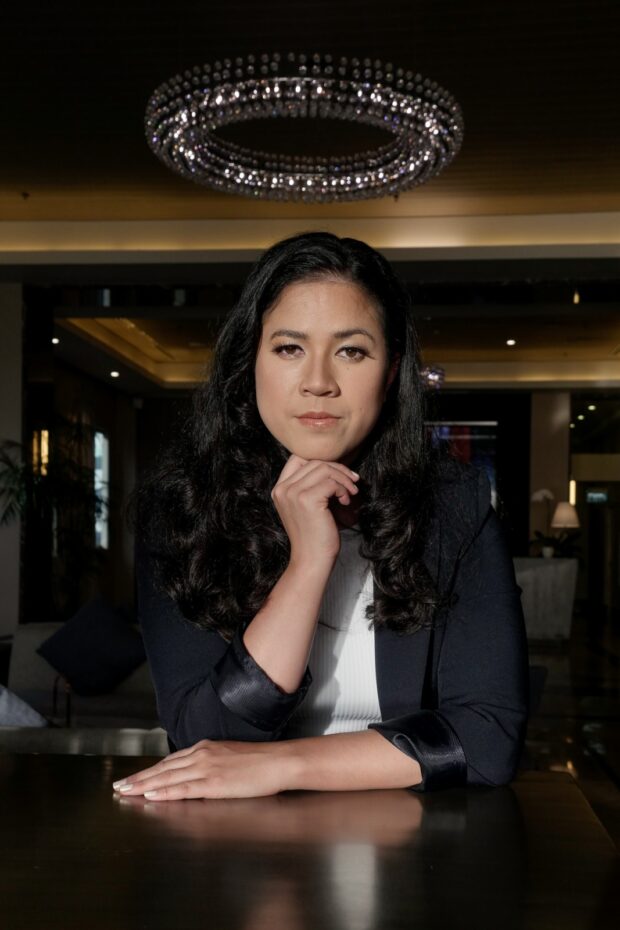International peer-to-peer mobile remittance app, TANGGapp, recently launched its “reverse padala product feature” where Philippine-based account holders can easily send money to loved ones in the US in just a few clicks on their phones. Now, sending money from the US to the Philippines or vice versa, regardless of where you live or what you earn is seamless and stress-free. Since its inception in April 2020, TANGGapp (derived from the Filipino term tanggap which means “to receive”) has allowed users to send and receive money as swiftly as texting, with the best exchange rates, faster transfers, and zero transfer fees, making it the most cost-effective money transfer app!
So, picture this: your daughter has been accepted as an international student in a university in California, your friend is set to open his first food truck business in San Francisco, or your brother is currently touring New York and you suddenly remembered to request for a “pasabuy” and they could definitely use some extra cash from you. Finally, with TANGGapp’s newest service feature, you may now send money from here to people like them based in the US more easily, efficiently, and stress-free, without having to endure the traffic when going to a bank or a remittance center, and putting up with those long queues, and endless forms to fill up. All it takes is for the sender and receiver to have TANGGapp installed on their mobile phone with their PH-based bank such as BPI, Unionbank, RCBC, and Chinabank accounts connected.

This Filipina-founded and Harvard-built mobile money remittance app (headquartered in New York) was borne out of a passion to offer millions of Filipinos—especially Overseas Filipino Workers (OFWs)—a simpler, safer, and cheaper way to send and receive money between the US and the Philippines. Now, with TANGGapp’s newest feature, sending money to the US becomes a worry-free way process, devoid the long queue, paperwork, and expensive fees, as it only charges 3% for the exchange rate, but zero transfer fees for all money transfers regardless of the amount sent.
Filipinos at this fintech’s forefront

At the helm of this breakthrough money remittance app is Dutch-Filipina Rebecca Kersch, TANGGapp’s Founder and CEO. Born in the Netherlands to a Dutch-Indonesian father and a Filipino American mother, Kersch always visits her Filipino relatives annually, and always considers the Philippines as home. Thus, while she fluently speaks Dutch, English, and French, she can proudly understand and speak Filipino/Tagalog when in the Philippines.
After completing her double master’s degree (with Latin honors), and having accomplished stints in non-profit organizations globally, including the United Nations, among others, Kersch figured out that these organizations were not entirely what she wanted to steer her professional goals and personal advocacies to. She soon realized that her lifelong dance between business is her way of making a deep social impact that could start a solution for migrant workers based in the US and who are regularly sending remittances back home in the Philippines. Thus, TANGGapp was established.
Collaborating closely with her to build this financial tool of the future is Rocco Puno (also a Filipino), and the organization’s Chief Revenue Officer. With them is a formidable 15-man powerhouse team made up of diverse people including engineers, product managers, designers, marketers, compliance specialists, and more, from around the world but united by their common passion for financial inclusion for the millions worldwide who are still unbanked.
TANGGapp’s story began with Kersch’s aunt who she fondly calls “Tita Baby”, a Filipino migrant worker based in the US. “I think all of us has a Tita Baby but mine is pretty special,” Kersch smiled. “She was one of those Filipinos in the US who would habitually send money to the Philippines but have to pay exorbitant fees of up to 8% to 10%. This was like spending as much as an entire month’s wages just on high fees when sending remittances,” she exclaimed. Wanting to solve this problem, Kersch embarked on an exhaustive research journey, spoke to more Filipino migrant workers in the US, and also with their relatives back in the Philippines and found out that the crisis is bigger than she thought. “Some households do not have a savings accounts, often have no insurance, and still pay for rent instead of having their own properties, among many others. I had to do something,” she recalled.
Seeing the problem in the market and armed with experience in both business and social impact, Kersch sought to solve it by creating TANGGapp, an innovative mobile remittance app that provides a straightforward, effortless, and affordable way for Filipinos (like her Tita Baby) to send money from the US to the Philippines, and now, from the Philippines to the US. TANGGAapp will soon be launched in the Middle East to cater to the over 2 million OFWs in Saudi Arabia, United Arab Emirates, Kuwait, Qatar, Bahrain, Oman, Jordan, Lebanon, and Israel.
Simple, safe, sulit
Sending money via TANGGapp means fast transfers within minutes, low minimums as you can transfer amounts as low as $5 so and send it when you need to. While it has a minimal foreign exchange fee, it has no additional transfer charges so you could get the most practical money transfers, without breaking the bank. To ensure the safety of your money, TANGGapp’s personalized support allows you to send money securely backed by data encryption and a global team with 24/7 customer service. It even allows you to send money to yourself in just a few taps, like transferring funds between your US bank account to your Philippines bank account or e-wallet easily, as long as both accounts are linked to your TANGGapp. You may also schedule auto transfers by setting future payments so you will never miss a billing deadline. Moreover, in case your family in the Philippines needs mobile load to be able to send you updates, TANGGapp lets you send load to any Filipino phone number or top up your own phone.
“Sending money should be as easy as texting, regardless of where you live or what you earn. At TANGGapp, we believe that digital mobile payment services can improve, starting with this offering to fellow Filipinos,” Kersch emphasized.
Breaking the barriers for the bigger picture
According to the Financial Inclusion Survey by the Bangko Sentral Ng Pilipinas, the number of unbanked Filipino adults stood at 51.2 million in 2019, or 71% of the total adult population. Lack of enough money to open and maintain the balance, waiting time, and proximity to banks (particularly for those living in remote rural areas), remain the topmost reasons why some Filipinos prefer not to open a savings account. In fact, a good chunk of the population relies on pawnshops and money service businesses (MSBs) as their go-to remittance channels, as evident among Filipinos with 37% of adults sending money and 48% receiving these transfers. Pawnshops and MSBs were the top remittance channels used by 98% of senders and 93% of receivers. Banks, physical delivery, and ATMs were the next chosen options, but each comprise a minimal share of less than 5%, while a mere 1% chose to remit money online. (https://www.bsp.gov.ph/Inclusive%20Finance/Financial%20Inclusion%20Reports%20and%20Publications/2019/2019FISToplineReport.pdf)
Cognizant of these demoralizing facts, Kersch opted to change this circumstance as she knows how fintech can spur financial literacy, alongside the fact that almost all operations can now be accessed with the user-friendly smartphone, that has the power to reduce the gaps and streamline the process between the complex world of finance and many fresh users. Fueled by her advocacy to help Overseas Filipino Workers (OFWs) like her Tita Baby, Kersch established the revolutionary TANGGapp to improve the lives of Filipinos—especially those based in the US who regularly sends money to their families (most of who are usually still unbanked) in the Philippines. She believes that this groundbreaking money transfer fintech can empower financial literacy and financial inclusion among Filipinos, by making remittance more accessible and affordable.
One of the crucial benefits of fintech like TANGGapp is its ability to provide access to financial services like sending and receiving money transfers, especially for people who are not served by traditional banks, predominantly by making remittance attainable, affordable, convenient, and user-friendly through their mobile phones. This will positively influence users in terms of their financial decision-making, while improving the economic outcomes for individuals and society as a whole. Looking at the bigger picture, the Filipina-founded, US-based company is hinged on a social mission to help improve the lives of migrant workers and the unbanked Filipino families, starting with the US and the Philippines. The team strongly believes in the mission of what they are building, and they aim to partner with the Filipino community to show OFWs that a less expensive and more convenient alternative exists for sending money back to the Philippines.
TANGGapp’s long-term vision is to democratize access to payments and to improve the lives of migrants and the unbanked Filipinos through innovative financial inclusion. Thus, it is not surprising to know that Kersch and team are constantly analyzing pain points for their fellow Filipinos abroad and their families back home, as they continue to build new features to address those needs.
“At TANGGapp, we are dedicated to promoting global financial inclusion, starting with the Philippines,” Kersch concluded. Although TANGGapp is limited to the Philippines and the US currently, its all-time goal is to address the needs of all Filipino migrants and families who are unbanked, globally…one easy, affordable, and faster remittance at a time.
TANGGapp is a free-to-download mobile remittance app. Available on the Google Play or App Store under TANGGapp Money Transfers. To know more about TANGGapp, follow it on Instagram, Facebook, or LinkedIn.
ADVT.

